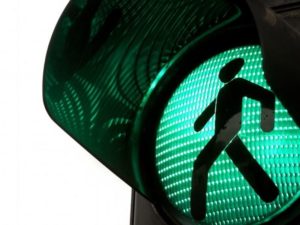Accident related concussions


Most people relate concussions to sports injuries, which makes sense. The majority are caused by sports-related incidents. However, it’s estimated that 3.8 million of these injuries occur each year in the U.S. with 50% of total concussions going unreported.
Accident-related concussions span more than just sports injuries. Car accidents, falls, and even bicycle accidents can all lead to this condition. If you’ve recently suffered a concussion, here’s everything you need to know about complications, treatment, returning to work, and a few prevention tips for the future.
Complications
Concussions impact your brain and cognitive functions. This leads to a wide range of symptoms and complications depending on what area of the brain is injured. Common complications include:
- Vision impairment
- Memory loss, especially short-term
- Changes in your normal social behaviors
- Severe headaches
- Nausea and vomiting
- Aggressive and agitated states
- Hand-eye coordination impairment
- Difficulty distinguishing your left from your right
Since these complications impact your ability to perform daily tasks, it’s likely that you’ll need time off work to recover. That’s why it’s vital that you seek compensation for an accident, especially when it was the cause of someone else’s negligence. Make sure to find legal representation familiar with your type of accident, like a bicycle accident attorney if your concussion was caused by a wreck.
Treatment
Compensation can also help you pay for the various treatments you may need. Rest is the most important part of the recovery process, but bills begin to pile up when you need physical and psychological therapy.
You shouldn’t drink during this time, either, as it will slow down your recover. Take it easy, not participating in physically strenuous activities, and make sure to check in with your physician often. As your concussion goes away, you’ll be able to drive and exercise again.
Returning to Work
It’s ultimately up to you to decide when it’s time to return to work. However, you should ask you physician about it as well. Together, the two of you can ensure you’re truly ready to start working again. This could take days, weeks, or months depending on the severity of your concussion. While you might want to rush this part of the process, it’s vital that you let the healing process take its time.
Future Prevention
There are plenty of ways to keep yourself safe and concussion-free in the future. While you can’t avoid every accident, you can protect your head. Wearing proper head gear in the workplace is one of the most highly recommended preventative measures.
You should also make sure any shelving or storage areas are free of clutter to eliminate falling objects. Make sure you use all of the safety equipment your company offers, even if you’re only climbing a small ladder or step stool.
Deadlines and projects cause workers to rush, but resist the temptation. Make sure to put your safety before the job at hand. Finally, you can practice precautionary measures at home to make them a habit. This will ensure you practice them at work, too.






